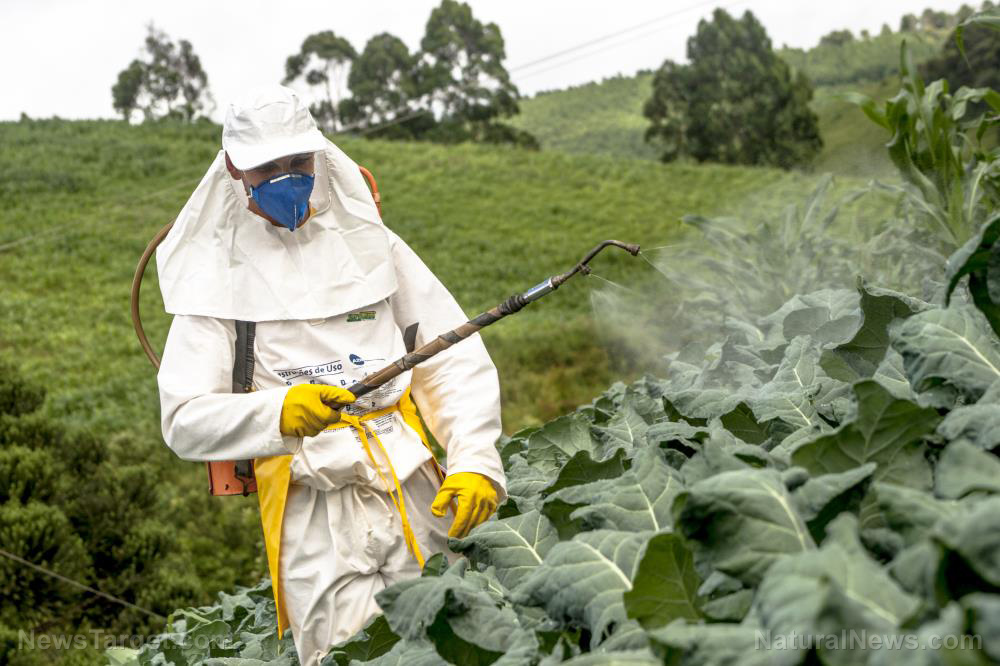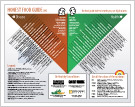
(Natural News) Most of us can choose to buy organic produce to avoid the dangers of pesticides to some degree, but the same can’t be said of farm workers and children living in the vicinity of conventional farms. Study after study has alerted us to the havoc that exposure can wreak on health. Why are these risks constantly being ignored?
American farmers use roughly a billion pounds of chemicals on crops each year, including the fruits and vegetables that well-meaning parents give their kids for nourishment. Although governmental agencies like the FDA are tasked with making sure such chemicals don’t put people at risk, the truth is that they are failing miserably thanks to some serious limitations. Not only that, but no agency monitors the risks to farm workers and the pregnant women and children living near farms.
For example, the USDA and FDA track pesticide residues looking at each chemical individually to see if it exceeds EPA safety standards. That doesn’t give a true picture of the degree of damage because crops are typically sprayed with multiple chemicals throughout the growing season. The dangers of some pesticides climb dramatically when they are mixed with other chemicals.
Independent analysis of USDA data carried out by the Environmental Working Group found that 70 percent of American produce has at least a trace level of pesticides, and some fare far worse than others. For example, strawberries, spinach, and kale are all near the top of the list when it comes to pesticide load.
Even low doses are enough to cause harm to children, and it’s especially risky when they are in critical neurodevelopmental stages. Sadly, many of these problems aren’t evident until years later. More than 90 percent of us have pesticides or pesticide byproducts in our bodies, and most of them came from conventionally grown vegetables and fruits. Some experts have expressed concerns that the limits set by the EPA are too high to really protect children.
100% organic essential oil sets now available for your home and personal care, including Rosemary, Oregano, Eucalyptus, Tea Tree, Clary Sage and more, all 100% organic and laboratory tested for safety. A multitude of uses, from stress reduction to topical first aid. See the complete listing here, and help support this news site.
It’s also important to take into account the fact that pesticides don’t always stay where they are applied. Spraying is hardly an exact science, with wind causing it to drift into other areas, including those where organic crops are growing as well as bodies of water and even nearby schools.
On top of that, farm workers can track pesticide residues into their homes after work via their shoes and clothes, where it can collect in dust that ends up on the floor and other surfaces where babies play.
That’s why children of farm workers have been shown in studies to be subjected to greater pesticide exposure than consumers, and mothers who live close to fields where pesticides have been used are more likely to have a premature baby or a child with impaired cognitive function, neurodevelopmental disorders, or autism. Young girls can also suffer from impaired fertility, early puberty and a greater breast cancer risk.
Your health is in your hands
Unfortunately, the regulations simply don’t take into account all the information that research studies have gleaned in recent years about the high degree of danger linked to pesticide exposure. That’s why it’s up to us as consumers to do all we can to mitigate our risk.
For example, you should buy organic produce as much as possible, especially those foods that appear on the Environmental Working Group’s Dirty Dozen list. No matter what type of fruits and vegetables you buy, be sure to wash them before using them. You can also grow your own organic produce for peace of mind if it’s at all feasible. Even if you don’t have a yard, urban gardening solutions can help you grow a surprising amount of produce in a relatively small space.
As long as regulators continue to turn a blind eye to the real dangers of pesticides, the best thing you can do is take matters into your own hands.
Sources for this article include:
















